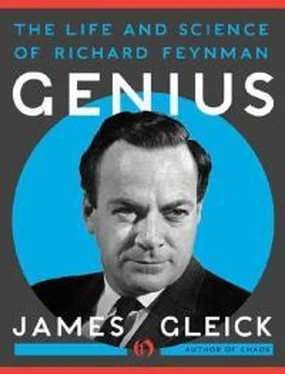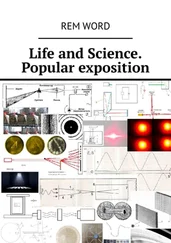Mann, and Bethe were chief among them. The Nobel committee traditional y found it easier to identify worthy candidates than to pinpoint their most worthy particular achievements. Most notoriously, Einstein had won
specifical y for his work on the photoelectric effect, not for relativity. When Bethe final y did win, in 1967, the prize singled out his parsing of the thermonuclear reactions in stars—important work, but an arbitrary choice from an unusual y broad and influential career spanning decades.
Feynman could plausibly have won for his liquid-helium work, had that been his only achievement. Each fal , as the announcement neared, Feynman had been alive to the possibility. He and Gel -Mann might have won for their theory of weak interactions, yet Gel -Mann had already moved on to a more sweeping model of high-energy particle physics. The committee found it easier to reward particular experiments or discoveries, and experimenters tended to win their prizes far more promptly than theorists.
Broad theoretical conceptions like relativity were the most difficult of al . Even so, it was odd that the Nobel committee had not yet recognized the theoretical watershed reached almost twenty years before with quantum electrodynamics and renormalization. The experimenters Wil is Lamb and Polykarp Kusch had long since been recognized, in 1955, for their contributions to quantum electrodynamics.
No more than three people may share a Nobel Prize.
That rule may have added to the complications in the case of quantum electrodynamics. Feynman and Schwinger were two. Tomonaga had matched or anticipated the essence of Schwinger’s theory, even if his version had not been quite as panoramic. Dyson was a problem. His contribution had been the most mathematical, and the Nobel Prize abhorred mathematics. Some physicists felt
vehemently that Dyson had done no more than analyze and publicize work created by others. Dyson, having settled at the Institute for Advanced Study, drifted away from the theoretical physics community. He had no taste for the involutions of particle physics. He indulged his lifelong passion for space travel by participating in various visionary projects. He grew fascinated with the global politics of nuclear weapons and with the origin of life. The Nobel recommendations of influential American physicists
—his old antagonist Oppenheimer among them—may have omitted Dyson, although to a knowledgeable minority it seemed that no one, during the tumultuous birth of modern quantum electrodynamics, had understood the problem more broadly or influenced the community more deeply.
Thus, when the Western Union “telefax” arrived at 9 A.M.
on October 21, 1965, it named Feynman, Schwinger, and Tomonaga for their “fundamental work in quantum electrodynamics with deep ploughing consequences for the physics of elementary particles.” By then Feynman had been awake for more than five hours. The first cal had come at 4 A.M. from a correspondent of the American Broadcasting Corporation shortly after the announcement in Stockholm. He rol ed over and told Gweneth. At first she thought he was joking. The telephone kept ringing until final y they left it off the hook. They could not get back to sleep. Feynman knew his life would not be the same.
Photographers from the Associated Press and the local newspaper were at his house before sunrise. He posed outdoors in the dark with Carl, his sleepy three-year-old,
and gamely held a telephone receiver to his ear as the flashbulbs popped.
Since the press now had to give an account of quantum electrodynamics for the first time, Feynman rapidly learned to field a sequence of variations on what seemed to him a single question: “Wil you please tel us what you won the prize for—but don’t tel us! Because we’l not understand it.”
The actual questions were impossible to answer: “What applications does this paper have in the computer industry?” “I’m going to ask you also to comment on the statement that your work was to convert experimental data on strange particles into hard mathematical fact.” And then the one question he could answer: “What time did you hear about the award?” In a private moment a reporter for Time made a suggestion he loved: that he simply say, “Listen, buddy, if I could tel you in a minute what I did, it wouldn’t be worth the Nobel Prize.” He realized that he could work up a stock phrase about the interaction of matter and radiation but felt it would be a fraud. He did make a serious remark
—and repeated it al day—that reflected his inner feeling about renormalization. The problem had been to eliminate infinities in calculations, he said, and “We have designed a method for sweeping them under the rug.”
Julian Schwinger cal ed, and they shared a happy moment. Schwinger, stil at Harvard, was pursuing an ever more solitary road in his theoretical physics but, unlike Feynman, had brought forth a long and distinguished string of graduate students working on the frontier problems of
high-energy physics. A decade earlier, when Feynman won the Einstein Award, he wrote his mother: “I thought you would be happy that I beat Schwinger out at last, but it turns out he got the thing 3 yrs ago. Of course, he only got ½ a medal, so I guess you’l be happy. You always compare me with Schwinger.” Now their rivalry was over, if not forgotten.
Feynman cal ed Tomonaga in Japan and then reported to a student journalist a capsule caricature of the Nobel Prize–
day telephone conversation:
[FEYNMAN:] Congratulations.
[TOMONAGA:] Same to you.
How does it feel to be a Nobel Prize winner?
I guess you know.
Can you explain to me in layman’s terms exactly what it was you did to win the prize?
I am very sleepy.
By afternoon students had raised across the dome of Throop Hal an enormous cloth banner reading, “Win big, RF.”
Hundreds of letters and telegrams came in over the next weeks. He heard from childhood friends who had not seen him in almost forty years. There were cables from shipboard and muffled telephone cal s from Mexico. He told reporters that he planned to spend his third of the $55,000
prize money to pay his taxes on his other income (actual y he used it to buy a beach house in Mexico). He felt himself under stress. He had always felt that honors were suspect.
He liked to ridicule pomp and talk about his father, the uniform salesman who taught him to see past the uniforms.
Now he would be traveling to Sweden to appear before the king. The mere thought of buying a tuxedo made him nervous. He did not want to bow before a foreign potentate.
For several weeks he grew obsessed with an odd fantasy that one was forbidden to turn one’s back on the king and therefore had to back up a flight of steps after receiving the award. He practiced jumping backward up steps, both feet at once, because he decided that he would invent a method that no one had used before. He planned to examine the actual steps in advance and rehearse. One friend sent him a rear-view mirror from an automobile as a joke; Feynman took it as evidence that other people knew about this rule.
When Sweden’s ambassador paid him a courtesy cal , Feynman took the opportunity to confess his worry. The ambassador assured him that he could face any direction he chose; no one climbed stairs backward.
In the event, he put on white tie and tails, slicked his hair down, and grinned as he accepted the award from a bespectacled King Gustav VI Adolf. The prizewinners sped through a week of banquets, dances, formal toasts, and impromptu speeches in Sweden’s ornate and palatial civic buildings. They traveled from Stockholm to Uppsala and back, partied with students in a beer cel ar, and made conversation with ambassadors and princesses. They col ected their medals, certificates, and bank checks. They delivered their Nobel Prize lectures. Feynman realized that he had never read anyone’s Nobel lecture. Scientists’,
Читать дальше












